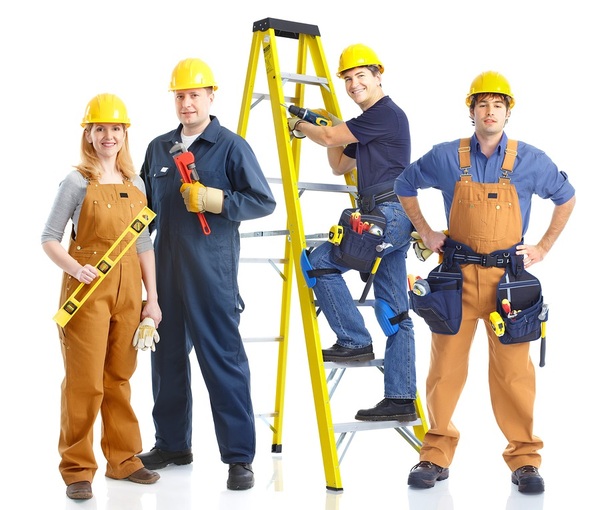To do work as a contractor in the Commonwealth of Massachusetts, you need to be properly licensed. For the new construction of residential housing designated for one or two families, a restricted construction supervisor license is required. For projects consisting of 35,000 cubic feet of living space or less, an unrestricted construction supervisor license is required. Larger projects require a certified engineer or architect to be onsite, but they do not require a licensed supervisor.
Remodeling projects of owner-occupied homes housing one to four families require a special Home Improvement Contractor’s license, but this license does not require any classroom time or any testing. The supervisor licenses and associated trade licenses do require classroom time and testing for approval. The supervisor licenses also require three years of work experience that does not need to be consecutive, but must be full-time work done over a period of 10 years.
It is important to note that Massachusetts, as a general rule, does not acknowledge licenses and certifications from other states. There are some isolated instances where a license from another state could give a contractor the fast path to Massachusetts approval, but that is not the case for a majority of the licenses. If you are a contractor from outside of Massachusetts, then you should contact the Massachusetts State Board of Building Regulations and Standards to find out what you need to do to get your appropriate Massachusetts license.

Getting your contractor license in Massachusetts requires plenty of work.
Becoming a Licensed Construction Supervisor in Massachusetts
The Massachusetts Construction Supervisor License (CSL) is broken down into specific fields. You can get a CSL in:
- General construction (restricted and unrestricted)
- Masonry
- Roofing
- Windows, Doors, and Siding
- Fuel-burning appliances
- Insulation
- Demolition
A CSL that is segmented into a specific field only applies to that field. The general construction CSLs apply to any of the specific fields mentioned and are the most common type of license issued. Specialty contractors who often work on projects of their own usually get the field specific licenses.
Aside from proving three years of work experience in the previous 10 years, licensees are also required to choose the kind of license they want and sign up for the associated exam. The testing facility will report the score to the Commonwealth of Massachusetts, and the contractor must mail their passing certificate and payment to the Commonwealth to get their license.
Field Specific Licenses
Every job site that meets certain criteria in Massachusetts must have a properly licensed supervisor onsite, but that is not the end of the licensing requirements. Specialists in certain fields also need to be properly licensed before they can set foot on a Massachusetts job site. Those specialists are:
- Asbestos Abatement
- Lead Abatement
- Electrician
- Plumber
- Gasfitter
- DOT Bid License
General laborers and any field not covered by the above-mentioned licenses do not require any state certification.
Asbestos Abatement
Asbestos abatement licensing includes licenses for workers, contractors, and supervisors. Each applicant must complete the specific training offered by Massachusetts, and then fill out an application for their license. Along with their training completion certificate, each applicant must also send in the required payment based on the type of license they want.
Lead Abatement
The process for getting a lead abatement license in Massachusetts is almost identical to the asbestos abatement process, including the same price schedule for each level of license. The biggest difference between the two is that lead abatement licensing requires a different training certificate than asbestos. Every worker on a lead or asbestos abatement project must be properly certified to work in that field.
Electricians
Electricians can choose from journeyman, master, system contractor, and system technician licenses. All of these licenses are good for three years once they are approved, and anyone who is licensed in Vermont, Maine, or New Hampshire can try to apply for a Massachusetts license without taking any tests.
To take the journeyman license, you must have at least four years of field experience that you can prove and have registered 300 hours of classroom time. The Massachusetts Board of State Examiners of Electricians must approve your application to take the test, but it is refreshing to know that the test is open book.
A journeyman must possess their license for at least one full year before they can take the master test. The master test consists of the journeyman test and extra sections on business and law in the contracting field. The systems contractor and system technician licenses are based on subjects such as alarms, circuit calculations, and troubleshooting.
Plumbers and Gasfitters
Before a plumber can become a journeyman, they must complete at least three years of an apprentice program recognized by the Commonwealth of Massachusetts. Gasfitters must have worked in an apprentice program for two years before they can take the journeyman test. Plumbers are required to take at least 300 hours in plumbing theory classes, and gasfitters are required to take at least 150 hours of gasfitter theory classes.
The exams for journeymen and masters in both plumbing and gasfitting are closed book and timed. The plumbing exam is a combination of a written part and multiple choice questions, while the gasfitter exam is all multiple choice. Applicants have four hours to complete the plumbing exam, and two hours to complete the gasfitting exam.

Now is the time to get your Massachusetts contractor license and get to work.
DOT Bid Licensing
Any company that wants to bid on Massachusetts Department of Transportation projects must first have a DOT bid license. The DOT requires licenses from contractors who work in a variety of fields including plumbing, electrician, asbestos removal, bridge construction, and tunnel digging. Any contractor from outside of Massachusetts who wants to bid on DOT projects is required to get a letter of good standing from the Massachusetts Secretary of State.
There are a lot of requirements to keep track of when it comes to becoming a contractor in Massachusetts, but you can get all of the help you need in understanding the process when you start a course with PDH Contractors online. This is the website that has all of the information and resources you need to make sure that you are ready to make the most of your Massachusetts construction career. From CSls to specialty licenses, you can find all of the information you need when you utilize the resources found at PDH Contractors.
